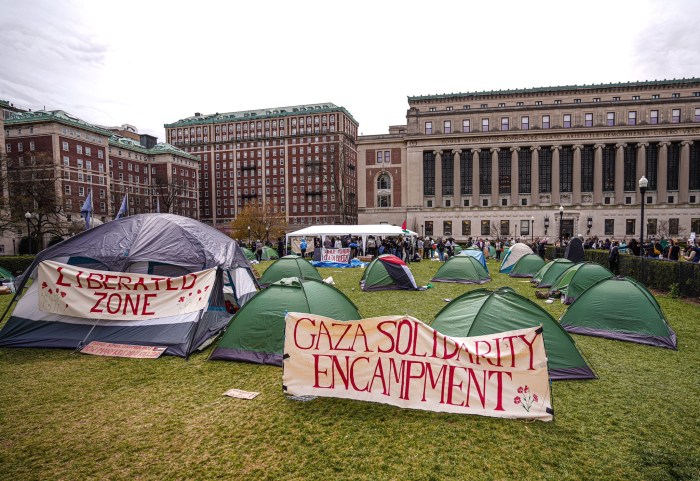By Michael Morton
The agreement, reached Jan. 19, provided funds for employees' health plans and retroactive pay increases. It also brought buses belonging to Jamaica's Green Bus Lines and Brooklyn's Command Bus Company back to the streets, ending a 10-day walkout that left more than 70,000 commuters seeking alternative forms of transportation.The city and the unions failed to come to terms during a meeting a week earlier, but came back to the table at Marshall's behest.”I never envisioned myself as a labor negotiator, but that's what it took and that's what I did,” Marshall said.Riders of the Green Bus Lines, which serves central and southern Queens, expressed relief at the end of the strike, which had stretched out over a number of bitterly cold days.”I'm never late to work,” said Jamaica resident Ora Butcher, who must give waiting patients their pills as part of her duties at a Manhattan nursing home. “These days I was late every day.”Green Bus runs in many areas without subway service, and during the strike the city authorized livery cabs and so-called “one-dollar” vans to pick up passengers at bus stops along certain uncovered routes, an activity for which they normally would have been fined. The vans, however, were crammed and could not accept MetroCards, forcing riders to shell out $1.50 or $1.75. The cabs charged more, Butcher and other commuters said.”It was uncomfortable spending a whole lot of money,” she said. Striking workers were also glad to be back on the job.”I like to work,” the driver of a Q6 bus in Jamaica said simply. He declined to give his name.Green Bus and Command Bus are scheduled to be taken over by April 30 to bring all the private lines into the Metropolitan Transit Authority's fold. The unions said they never opposed the transfer, still to be negotiated, but wanted a retroactive pay raise and funds for health care coverage so their workers would not be dropped by their carrier.”It wasn't contingent on the takeover,” said John Longo, president of the Green Bus union.For two years, the unions had worked without a contract. While any new deal had to be signed with the owners, it relied on the city providing the subsidized lines with extra funds. The city initially agreed to fund the health insurance but wanted the unions to negotiate with the MTA on wages. The new deal provides insurance money and gives workers a one-time payment of $1,000 plus a raise for the two years that they went without a contract. The third year of the agreement is subject to talks between the unions and the MTA about the takeover, which the unions vowed not to oppose but which must still be approved by the lines' owner.”It's been a tough week and a half for those who rely on buses,” said Mayor Michael Bloomberg. The city did not announce why it eventually agreed to the unions' demands, but it was thought the cold weather and the involvement of City Council Speaker Gifford Miller (D-Manhattan), a challenger for mayorship in an election year, played a role.Marshall, the daughter of a union organizer, called the deal a “major step” toward the transfer. Many riders have complained that equipment on the private lines is old and that the service is shoddy. Butcher, the Jamaica nurse, said some Green buses have no heat and broken stop buttons and hoped the transfer would bring new vehicles.”I hope so,” she said. “These buses are no good at all.”Peter A. Sutters Jr. contributed to this report.Reach reporter Michael Morton by e-mail at news@timesledger.com or by phone at 718-229-0300, Ext. 154.
































